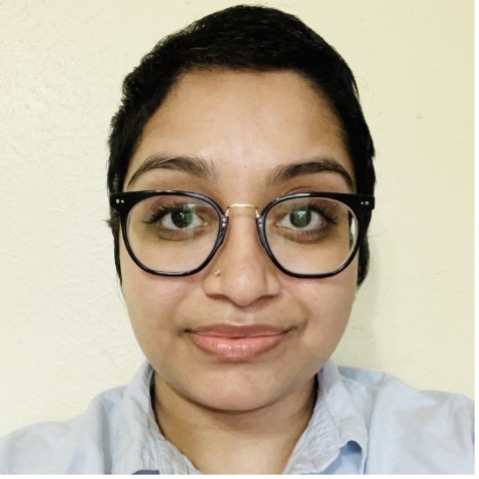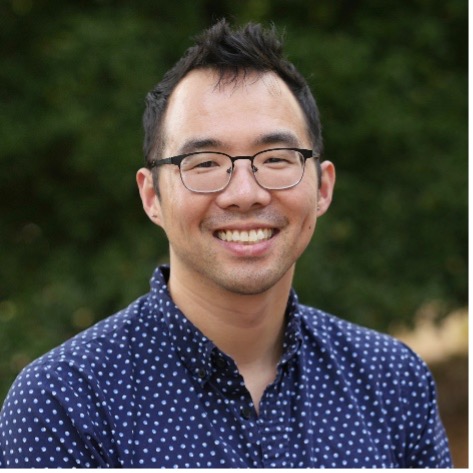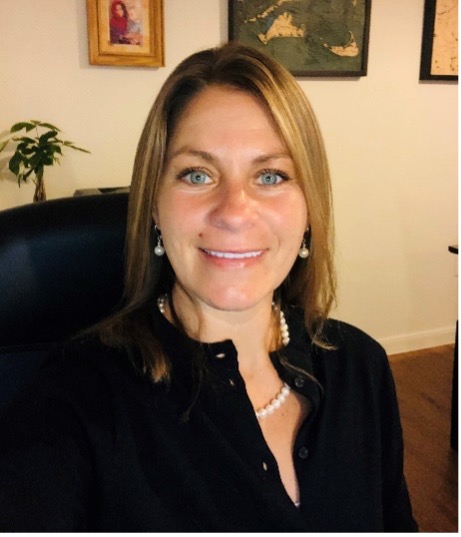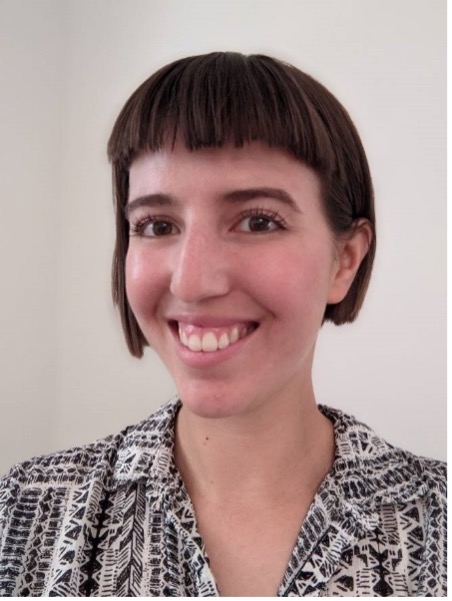During the one-year fellowship, NCF Fellows will gain work experience in an NCI host office and participate in a wide variety of professional development opportunities. Please visit the tabs to the left for more information on program requirements, pay and benefits, examples of past work assignments, and more.
Fellowship Requirements
NCF Fellows are required to attend and engage in the following during their fellowship to successfully graduate from the NCF:
- NCF Orientation
- Brown Bags
- Professional Development Trainings
- One-on-One Check-ins with NCF Program Manager
- Fellowship Project Presentation
More information about the above requirements is discussed during NCF Orientation.
Host Office & Work Assignments
All NCF Fellows are placed in an NCI host office. NCI host offices vary each year. Applicants are encouraged to familiarize themselves with the 30 NCI divisions, offices, and centers, many of which have previously hosted NCF Fellows.
All NCF Fellows are assigned a Mentor. The Mentor is the Fellow's day-to-day contact, assigns work and assesses performance, and works with the Fellow to develop the NCF Training Plan and outline projects and goals the Fellow will work on.
Past NCF Fellows have worked on the following:
- Social media management
- Create content for newsletters, blog posts, flyers, and websites
- Web analytics
- Produce videos
- Design interactive graphics
- Develop SOPs
- Data analysis and transfer
- Conference and exhibit management
- Internal communications
- Liaise and benchmark with patients, physicians, and other NIH Institutes
- Create and implement strategic communication plans
An NCF Fellow's assignments and projects will vary based on their host office.
2021 Class

Prema S. Bhattacharjee is a Cancer Research Training Award (CRTA) Fellow with the Implementation Science Team in the Office of the Director in the Division of Cancer Control and Population Sciences (DCCPS) at the National Cancer Institute. A returning fellow to DCCPS, Prema completed a CRTA fellowship, in 2017, with the Epidemiology and Genomics Research Program’s Environmental Epidemiology Branch.
Prema’s research interests include etiology of oncogenic infectious agents, health disparities, health inequity, social determinants of health, social epidemiology, maternal/child health, and cancer screening/prevention. She is currently a third year PhD Candidate at the University of South Carolina and she’s hoping to integrate outcomes from her fellowship into dissertation research.
Prema received her MPH from the Louisiana Health Sciences Center in Infectious Epidemiology in New Orleans, LA.

Kinza Shah has joined the Surveillance Research Program (SRP) in the Division of Cancer Control and Population Sciences (DCCPS) as an NCI Communications Fellow. During her time here, she will be working on SEER in the News, Cancer Stat Facts, the official @NCICancerStats Twitter page, along with other key initiatives.
Prior to arriving at the National Cancer Institute (NCI), Kinza earned her Bachelor of Science in Speech-Language Pathology and Audiology at Towson University. She then attained her Master of Arts in Audiology at the University of Pittsburgh. Her educational advancements led to academic and clinical experiences emphasizing the complexity of communication as well as the influential role of communication on one’s health and well-being. Kinza has engaged with various populations, ranging from children and adolescents to adults and senior living communities, as well as underserved populations. Her appreciation of the interconnected nature of health and how it intersects with communication inspired her engagement in communication theory, research, and practice to be better prepared to serve the greater social good.
Kinza is pursuing her PhD at the University of Miami in Health Communication with a particular focus on health and organizations. Her research experiences encompass the development of tailored health education materials, exploration of public health issues using community-based participatory research, and development and assessment of persuasive messages for health-related attitudes, beliefs, and behaviors. Her teaching experiences involve communication among individuals from diverse cultures, effective and strategic audience communication, and the influence of organizational structure and function on communication.

Jack Lee is an NCI Communications Fellow with the Division of Cancer Prevention. He contributes to a variety of communications activities, from writing to social media to meeting logistics.
Jack’s career path has had a few twists. After pursuing a Ph.D. in molecular biology at Princeton University, he worked as a data engineer for several years. He then switched gears and obtained a master’s in science communication at the University of California, Santa Cruz in 2020. Since then, Jack has completed science writing internships and contributed stories as a freelancer.

Roshni Roy is an NCI Communications Fellow at the Office of Dissemination and Digital Communication (ODDC) within the Office of Communication and Public Liaison (OCPL). Roshni is a multimedia professional who specializes in strategic messaging, content creation, and social media operations. Roshni’s responsibilities include content creation and curation of feature cards on the NCI website and social media posts for all NCI platforms.
Roshni is a final year graduate student in Media & Strategic Communications at George Washington University. Before joining NCI, Roshni was an associate at a local DC-based social impact consulting firm. Roshni’s career includes a variety of experiences within public, private, non-profit sectors, and higher education in a project management capacity. Roshni is incredibly passionate about social impact and utilizing art and technology to challenge the status quo. Roshni is happy to answer any questions about the NCI Communications Fellowship and can be reached at roshni.roy2@nih.gov.

Rebecca Erickson-Hinds is an NCI Communications Fellow (NCF) working with the Center for Global Health. She retired from the US Army in 2019 as the Senior Enlisted Medical Advisor for Special Operations Civil Affairs. Rebecca spent many years working around the world including Sub-Saharan West Africa, Afghanistan, and Iraq. Recently, she completed her Master’s in Public Health at The George Washington University, Milken Institute School of Public Health. While working at the NCI Center for Global Health she will focus on website management, social media strategy, and communications planning and implementation to increase access to NCI resources.

Elise Tookmanian, Ph.D., is an NCI Communications Fellow working in the Division of Cancer Epidemiology and Genetics (DCEG) on the Communications Team. Dr. Tookmanian supports the DCEG Communications Team by translating the research carried out in the Division into effective messages for social media, the website, and other educational materials. Prior to joining the NCI, she earned her Ph.D. in Chemistry at the California Institute of Technology in 2021 where her interdisciplinary research focused on the protective role of hopanoids, sterol-like bacterial lipids, found in agriculturally important bacteria. She received her B.A. in Chemistry from Franklin & Marshall College in 2015. She would be happy to answer any questions you may have regarding the fellowship or application process and can be reached at elise.tookmanian@nih.gov.
Stipends
NCF Fellows are paid a monthly training stipend through a Cancer Research Training Award (CRTA). The amount of your monthly stipend will be based on your undergraduate GPA, your highest earned degree, and your relevant post-degree experience. Stipends are prorated, meaning you will earn exactly 1/12 of your annual stipend rate per month. You can expect to receive between $34,300 and $49,500 per year depending on your education level and experience. Your official stipend will be calculated by your host office and will be communicated to you prior to your arrival at NCI.
Health Insurance
You are eligible to receive health insurance at no cost through the Foundation for Advanced Education in the Sciences (FAES). NCI will pay your monthly premium. If you already hold a health insurance policy in your own name that you would like to keep, NCI will reimburse you for the cost of your policy up to the amount that NCI would have otherwise paid for your insurance. For more information about health insurance, visit www.faes.org/health_insurance.
Taxes
Your stipend is taxable even though no taxes will be deducted. You will receive reference materials at orientation which will assist you in filing quarterly estimated tax payments to federal and state taxing authorities. You will owe taxes to the state you live in during your fellowship.
Work Hours
NCF Fellows work full-time (40-hours per week), generally from 8:30 am to 5:00 pm with a lunch break. The tour of duty is determined during your first week. Changes in schedule must be approved by your Mentor. Leave is determined by the host office as Fellows do not accrue vacation or sick leave.
Housing
NCF Fellows are responsible for their own housing. The following websites provide information about available and affordable housing. This list does not imply endorsement by NCI or NIH.
NIH Office of Intramural Training and Education (OITE)
https://www.training.nih.gov/resources/justarrived/
OITE has a moving guide available for NIH trainees. In it you will find information on housing and many
other relocation resources.
Craig's List - Washington DC/ Maryland/ Northern Virginia
http://washingtondc.craigslist.org/
http://washingtondc.craigslist.org/about/safety
Montgomery County Apartment Finder
http://www.apartmentfinder.com/Maryland/Montgomery-County-Apartments
County run website offering complete listings of apartment rental communities and search capabilities
Washington Post Apartment Listings
http://www.washingtonpost.com/wp-dyn/realestate/rent/
Metro area listings from the classifieds and sponsors, the site offers detailed searching capabilities.
Transportation
The NCI is located in three locations: the NCI Shady Grove Campus, in Rockville, MD; the NIH Main Campus in Bethesda, MD; and, the NCI Frederick Campus in Frederick, MD. Transportation information for each campus is located here.
Getting around the D.C. metropolitan area is easy using public transportation. Visit www.wmata.com for Metrorail and Metrobus schedules and fare information.
For more information visit https://www.cancer.gov/about-nci/visit
Training Resources
NIH Office of Intramural Training and Education - http://www.training.nih.gov/trainees
OITE's programs complement the training activities of the NIH Institutes and Centers (ICs). While
primarily a resource for biomedical research trainees in NIH's Intramural Research Program, OITE offers
many career development workshops which are of benefit to the entire trainee community.
CIT Training - http://training.cit.nih.gov/
The CIT Computer Training Program provided by the Center for Information Technology offers a wide variety
of courses and seminars that enable users to make efficient and effective use of computers, networks, and
information systems in their work at NIH. Examples of courses include: SPSS Basics, Useful Tools and
Utilities for Web Developers and Designers, Windows XP Tips and Tricks, and Office 2007 - What's
New? The trainings are free and open to NIH employees and to all users of CIT computing
facilities.
NIH Office of Human Resources - http://hr.od.nih.gov/
TThis is a public site for the Office of Human Resources (OHR) and is the primary source of Human
Resources information for people outside of the NIH (i.e., job-seekers, former employees, public). This
site provides OHR information on strategic programs, client services, and workforce relations support to
the NIH. In addition, important information is given on OHR news and events, employment, and inclement
weather.
NIH Library Training - http://nihlibrary.nih.gov/ResourceTraining/
The NIH Library trains users how to effectively find, appraise and manage information using an
array of electronic library resources. Topics include how to search the biomedical literature, access
online journals, order and receive articles via email, set up a research update service, and use
bibliographic management software to manage a personal library collection and format bibliographies. Trainings
are free and restricted to NIH staff.
Graduate School (formerly USDA Graduate School) http://graduateschool.edu/
The Graduate School is an
independent, educational, not-for-profit institution headquartered in the nation's capital with
additional sites strategically located throughout the U.S. The School engages a diverse student
population through innovative, as well as proven, approaches to teaching and learning that take advantage
of its locations, its network of public and corporate leaders and practitioners, state-of-the-art
technologies and connections with major employers. The School provides a broad array of learning
opportunities in formats accessible to adult learners everywhere through affordable training programs,
continuing education courses, executive and leadership development programs, and credit offerings at the
certificate and associate degree levels. Tuition must be paid at time of registration.
FAES Graduate School at NIH - http://www.faes.org/grad/
FAES offers nearly 200 courses each year at both the graduate and undergraduate levels. FAES
courses are certified by the Maryland Higher Education Committee and accepted for credit at most
universities. The majority of FAES Graduate School courses are in the biomedical field. Tuition
must be paid at time of registration.
The Capitol Net Research - http://www.thecapitol.net/PublicPrograms/
Offers legislative, communication and advocacy training, and media relations focused courses.
Media relations courses provide training on how to work with the media as part of ongoing education and
advocacy. Communications and advocacy courses show participants how to effectively develop, write, and
deliver a message. Examples of media relations and communication and advocacy courses include: Public
Affairs and the Internet: Advanced Techniques and Strategies; Strategies for Working with Congress
and Its Staff: Communicating Effectively with Capitol Hill; Using Grassroots, Coalitions, and the
Media to Get Your Message Heard: Advocacy and Education Campaigns in Washington; and Crisis
Communications Training. Tuition must be paid at time of registration.
NIH Office of Extramural Training Opportunities - http://nih-extramural-intranet.od.nih.gov/d/nih/training/step/step.htm
OER links you to myriad NIH and federally-sponsored training programs and opportunities. You may
find the Staff Training in Extramural Programs Training Programs (STEP) link on this website of
particular interest. These free seminars are open to NIH staff, require no advanced
registration, but are on a first come, first serve basis.
Young Government Leaders - http://www.younggovernmentleaders.org
Young Government Leaders (YGL) is a professional organization of young men and women employed by
the Federal government. Its mission is to educate, inspire, and transform the current and future leaders
of the government. YGL offers seminars on a variety of professional and personal development topics and
sponsors monthly social activities.
-
YGL-Bethesda - http://yglbethesda.org/
This is the Bethesda chapter of YGL; many of this chapter's members are NIH interns
Other Benefits
- Paid Federal government holidays
- Flexible work schedules
- Professional development seminars
- Public transportation subsidy
- Housing database
- On-site fitness center
- Recreation and Welfare Association
- Loan deferment for eligible federal loans